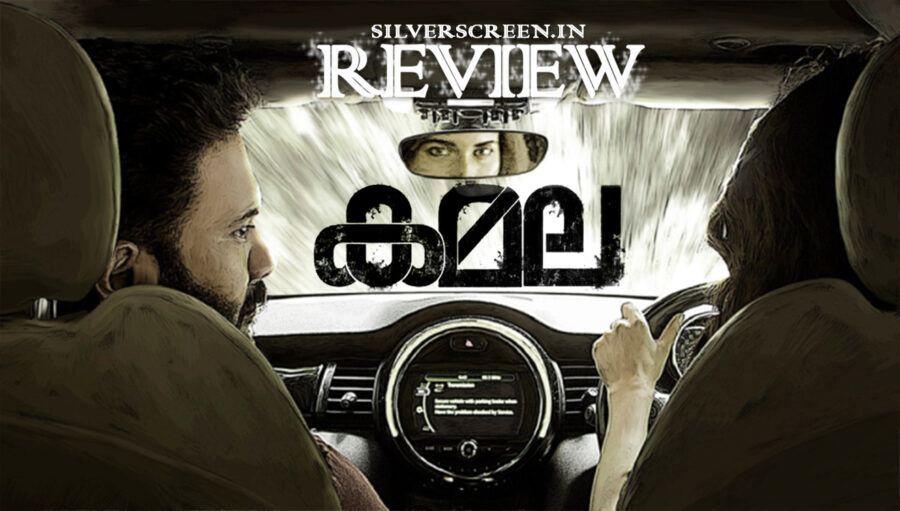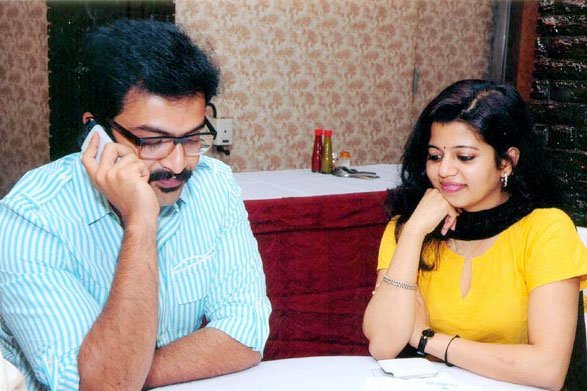Director: Ranjith Sankar
Cast: Aju Varghese, Ruhani Sharma
Close to the halfway point in Kamala, there is a scene that shows a rape attempt. Two men in their forties, who run a resort in the middle of a forest, spot a young woman – a friend of their close friend – unaccompanied. She tries to walk away but is stopped and harassed, first verbally and then physically.
There is an unsettling lack of self-awareness in the scene which is designed like an instance of comedy – the men’s heftiness is contrasted against the woman’s agility – brutally misplaced in a narrative that aspires to be a sombre thriller. Director Ranjith Sankar is less interested in expanding on the layers of the scene than in telling us just how cool his heroine who’s a martial arts champion is. But what does this act of violence say about the friendship that the men share, and how does it shape their relationship ahead? What explains the woman’s passivity here?
Kamala narrates the tale of a young woman who uses her physical attractiveness to trick men into helping her avenge the murder of her foster father. The gender war at the heart of the film is murky because Shankar sticks on to some of the old-fashioned fears about feminism; that a liberated woman will not hesitate to use her body, and status as a woman, to her advantage. Throughout the movie, Kamala is an object of desire, not just for the characters around her but for the camera too. For an abnormally long time, the audience are forced to deal with the shallow question of whether she is promiscuous or not. A smarter film would have moved on from that point to find more fascinating cinematic elements. Here, unfortunately, the flatness in writing and filmmaking stays on.
Unlike Sankar’s debut film, Passenger, which had smart story-telling that kept the audience guessing, Kamala isn’t a riveting thriller. The intrigue around the titular protagonist Kamala (Ruhani Sharma) dies quite early in the film because the narrative is more dependent on the exterior of her character – her physical features and some newspaper cuttings that talk clinically of her past – than on the insides of her personality. You get no glimpse of the conflicts she encounters, or the pain she undergoes. There are no memorable moments that lingers. The character has the weight of a mannequin; the kind of a person you wouldn’t want to pay attention to. Sharma’s obvious foreignness and bad lip-sync add to the clumsiness of it.
And Sankar’s rather strange obsession with the virtual world continues. In Kamala, Safar (Aju Varghese), an automobile and real-estate dealer meets Kamala on OLX which, in the director’s universe, seems to be a dating site for business professionals. They become friends after she shows interest in buying a luxury car he’s dealing. Later, when they meet in a forest hamlet, she introduces herself as a 22-year-old solo traveller who travels cheap on public transport and sleeps in low-cost hostels. Neither Safar nor the film is concerned about this contradiction.
Both, Safar and Kamala, are described as extraordinarily intelligent people, but the film struggles to match up to this claim. Her smartest move is an act of seduction, and his kitty is largely empty. In the final portion of the film, a big chunk of the plot is explained to the audience through a long phone conversation between Safar and his friend who is a journalist. Their exchange is stuffed with more information than the rest of the film.
The film’s depiction of tribal and Naxalite movements, which are largely dormant in Kerala, are problematically distorted. By colouring the ‘others’ – the low-income groups who exist on the margins of the society – in mindless violence, and centering the story around an urbane character who is well-educated, and according to Safar, has ‘Brahmin looks’, the film does a great disservice to the reality it exists in. The history and the anger of the former is unjustly reassigned to the latter to narrate an easier story for the mainstream audience.
Recommended
Kamala pretends to be heavier than it is actually is. Even if you volunteer to let go of all the logical loopholes in the story, the film is irredeemable for it doesn’t use the infinite cinematic possibilities of the thriller genre. Contrary to what the background score and the many suggestion shots of the lead characters say, there is no little tension in the narrative. There isn’t enough material to create intrigue. The odd and rather brave casting choice Ranjith Sankar made, to use Aju Varghese in a role that needs gravitas, might be the only remarkable thing about Kamala.
The Kamala review is a Silverscreen.in original article. It was not paid for or commissioned by anyone associated with the film. Silverscreen.in and its writers do not have any commercial relationship with movies that are reviewed on the site.



